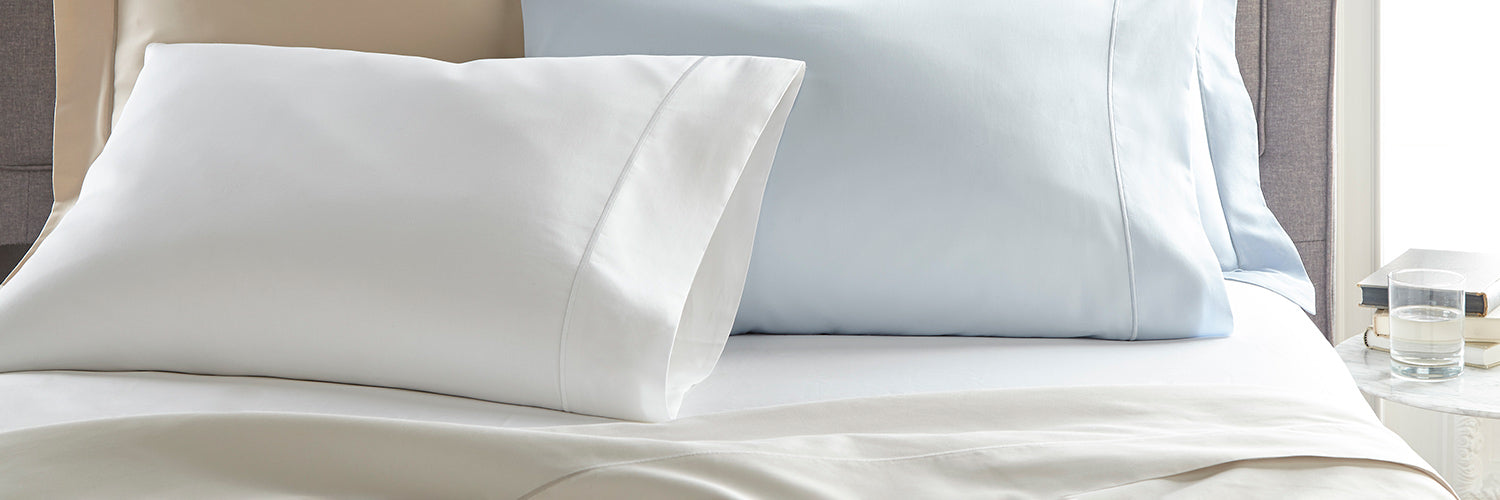You probably hear a lot about sheet thread count, and there is a lot of misinformation out there about it. We often are asked why we don’t make 1000 thread count sheets. This is because most people believe that high thread count sheets are the best quality, but the truth is a little more complex. In fact, thread count is only a part of the quality equation. We’ve gathered all of the details for you, so you’ll be able to separate truth from myth.
The Marketing Terms Game
Once upon a time, we all thought that any food package that said “lite” or “diet” on it must mean it’s good for you. Many of these claims were debunked as simple marketing ploys when the terminology was standardized. We still see these kinds of confusing terms on food packaging today. And it seems bedding has fallen prey to similarly misleading marketing tactics.
Somewhere around the mid-nineties, Americans were sold the idea that a higher thread count means better quality sheets. We wanted a way to quantify quality. And let’s face it, numbers are easy. Give us a numerical scale and we’re on board. But the truth is a bit less simple.























